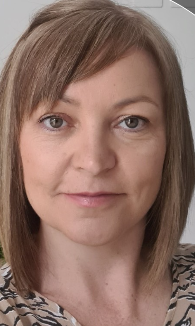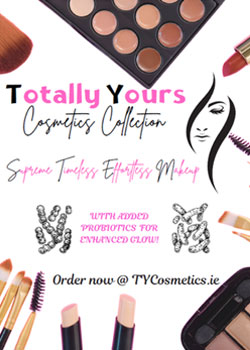International Day of Women and Girls in Science: Orla Sherlock

Could you tell us about yourself?
I’m Dr Orla Sherlock, a Microbiology Lecturer based at Dundalk Institute of Technology (DkIT), Republic of Ireland. I lecture across several disciplines, including science, veterinary nursing, health and nutrition, agriculture and nursing programmes. I am also an Outreach Coordinator for the School of Health and Science at DkIT, involved in the design, delivery and management of many outreach activities in our school.
It’s International Day of Women and Girls in Science on 11 February 2025; will you be doing anything to raise awareness?
Yes, we are currently visiting a number of schools with our DkIT Loves STEM outreach initiative. This initiative is designed to inspire and engage girls, in the fields of science, technology, engineering and mathematics (STEM).
You have worked on some great outreach activities to get girls more interested in STEM careers, could you tell us a bit about these?

Yes, this year, the Society supported us to develop a new range of innovative, exciting, hands-on STEM activities, specifically designed to capture the interest of transition year female students, as part of our DkIT Loves STEM Roadshow. Participating students compete for STEM roles in a fictional company, aptly named Totally Yours or TY Cosmetics. The workshops give participants the opportunity to explore various STEM careers through the process of creating and selling probiotic cosmetic products. It provides a unique, interactive, female focused experience.
Throughout the workshop, students face three exciting challenges that showcase their key STEM skills such as problem-solving, maths and creativity. These challenges, which include a probiotic cosmetic puzzle, TY ball gift box preparation, a STEM escape room and new product design, allow the girls to step into the roles of STEM professionals like formulation scientists, chemists, microbiologists, product engineers, product technologists and financial analysts - careers they might not have previously considered. By participating in these challenges, students gain valuable insights into the wide range of STEM careers available to them, all while having fun and gaining practical experience in a creative industry.
A follow up DkIT campus day will take place in May, where a lucky 100 TY girls, inspired by the Roadshow, will be given an opportunity to meet the remainder of the DkIT Loves STEM team and get hands on experience in computing, maths, technology, science, engineering, health and physical activity, as well as film and media. You can read more about the project via the DkIT outreach website.
What do you think the main barriers are for girls in considering careers in STEM?
There are several barriers, both societal and personal. One of the biggest challenges is the stereotype that STEM fields are for boys. This cultural bias can discourage girls from pursuing STEM subjects at school and beyond. Our DkIT Loves STEM Roadshow is run in conjunction with iWish, a community in Ireland committed to showcasing the power of STEM. Over the past 10 years, iWish have surveyed thousands of TY girls about attitudes to STEM. Their survey outcomes in 2024, (2024 survey) , found that 53% of girls lack confidence in their ability in STEM subjects while over 40% cited lack of access to female role models in this area as a barrier to persuing STEM. However, 85% of students surveyed said they were interested in STEM and 89% wanted to know more. This is why outreach is so important.
What advice would you give to other microbiologists interested in getting involved with, or setting up, similar outreach projects?
I would say, start small and stay focused on making the experience fun and engaging. Find ways to show real-world applications of microbiology that can capture their interest. Another of our outreach activities focuses on microbiomes and health, this really captures students’ interests as it relates to each individual and it is something they can change and control! Keep it simple, in my experience school students want to be active, prefer to engage in activities rather than listen to talks and love competing! Small prizes go down a treat!
Don’t be afraid to collaborate with other professionals, such as teachers or industry experts, as that can help make your projects more impactful and far-reaching. I began by delivering ‘pure’ microbiology workshops, but found it best when I collaborated. I now collaborate with colleagues within our science department delivering ‘combo’ workshops with chemistry lecturers. I also collaborate with colleagues in our health and nursing departments, and in 2024 we launched our first teddy bear hospital, to help reduce post COVID anxiety. Teddy visits the hospital and microbiology labs, where he has his blood tested and hands washed! Students learn about hospitals in a friendly fun environment and engage in many activities to address stress associated with hospital treatments and stays. Outside of my school, I engage with colleagues in other schools (engineering, computing, maths) via the DkIT Loves STEM Roadshow and, finally, we have begun engagement outside our college, via DkIT Science in Box. This antimicrobial resistance (AMR) based activity engages school teachers as collaborators.
I would also strongly recommend applying for an Outreach and Engagement Grant through the Microbiology Society. That is how I began. The Society offers outreach funding opportunities specifically designed to support initiatives that promote the understanding of microbiology and engage the public, particularly younger audiences, in the field. I have been lucky to receive three grants that have supported my work.
As a woman working in science, what are some of the challenges you have faced?
As a woman working in science, one of the biggest challenges I’ve faced has been achieving a healthy work-life balance, particularly as a mother. Balancing the demands of a career in academia with the responsibilities of raising children can sometimes feel overwhelming. Finding the right balance requires a lot of planning, flexibility and support. It’s not always easy, but it’s important to advocate for yourself, seek support where needed and remember that finding a balance is an ongoing journey.
Do you think more needs to be done to support women working in (or hoping to work in) science?
Absolutely. While progress has been made, there’s still much work to do in terms of providing equal opportunities and ensuring that women feel supported in their careers. Flexible working hours, mentorship programmes and more initiatives to raise awareness of gender biases are crucial. Additionally, we need more representation of women in leadership roles to create a more inclusive and diverse academic environment.
Finally, could you tell us why you decided to join the Society and become a Champion?
I joined the Society to take advantage of opportunities of collaboration and networking. Each year, it’s great to attend the Irish meetings and meet ‘local’ microbiologists on the island of Ireland! As a Champion, I can be a part of a broader movement that encourages and supports microbiology outreach. I’m passionate about ensuring that every student, regardless of gender or background, has the opportunity to explore and pursue careers in science, technology, engineering and mathematics. Providing equal access to STEM education from an early age is crucial in breaking down barriers and inspiring the next generation of diverse scientists. I take every opportunity to promote microbiology within this.
Find out more about the Society’s equality, diversity and inclusion initiatives and grants schemes.
